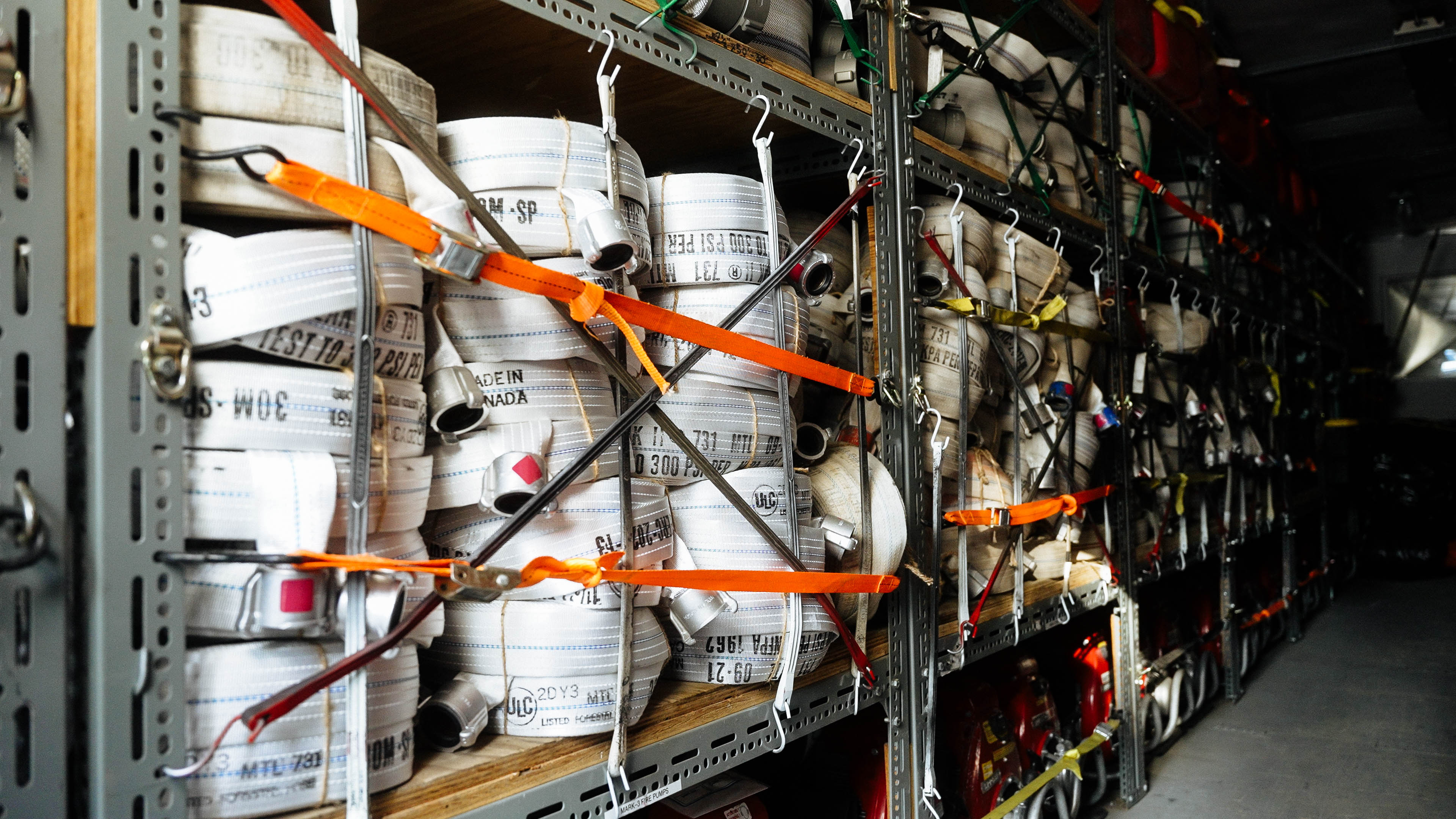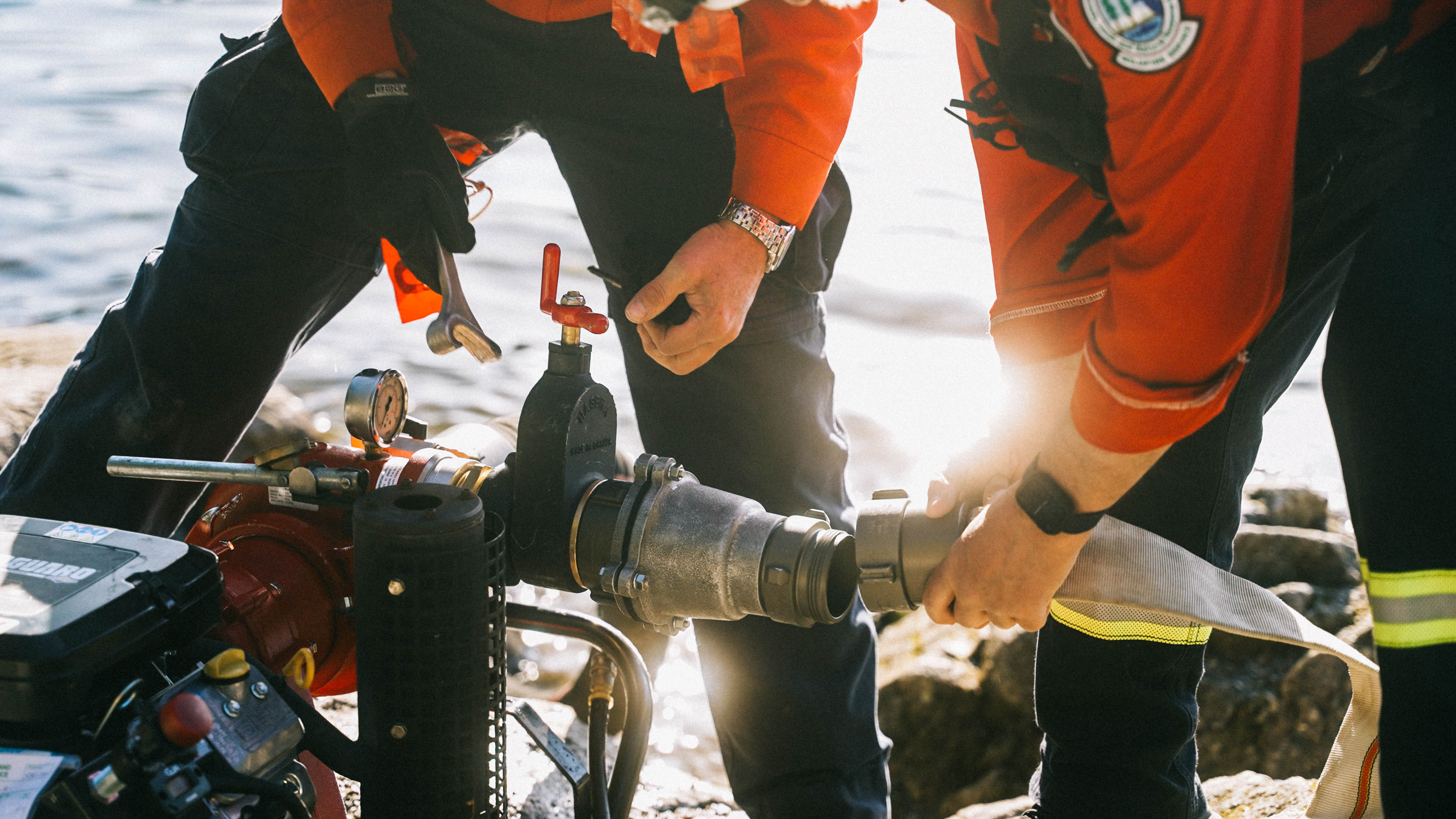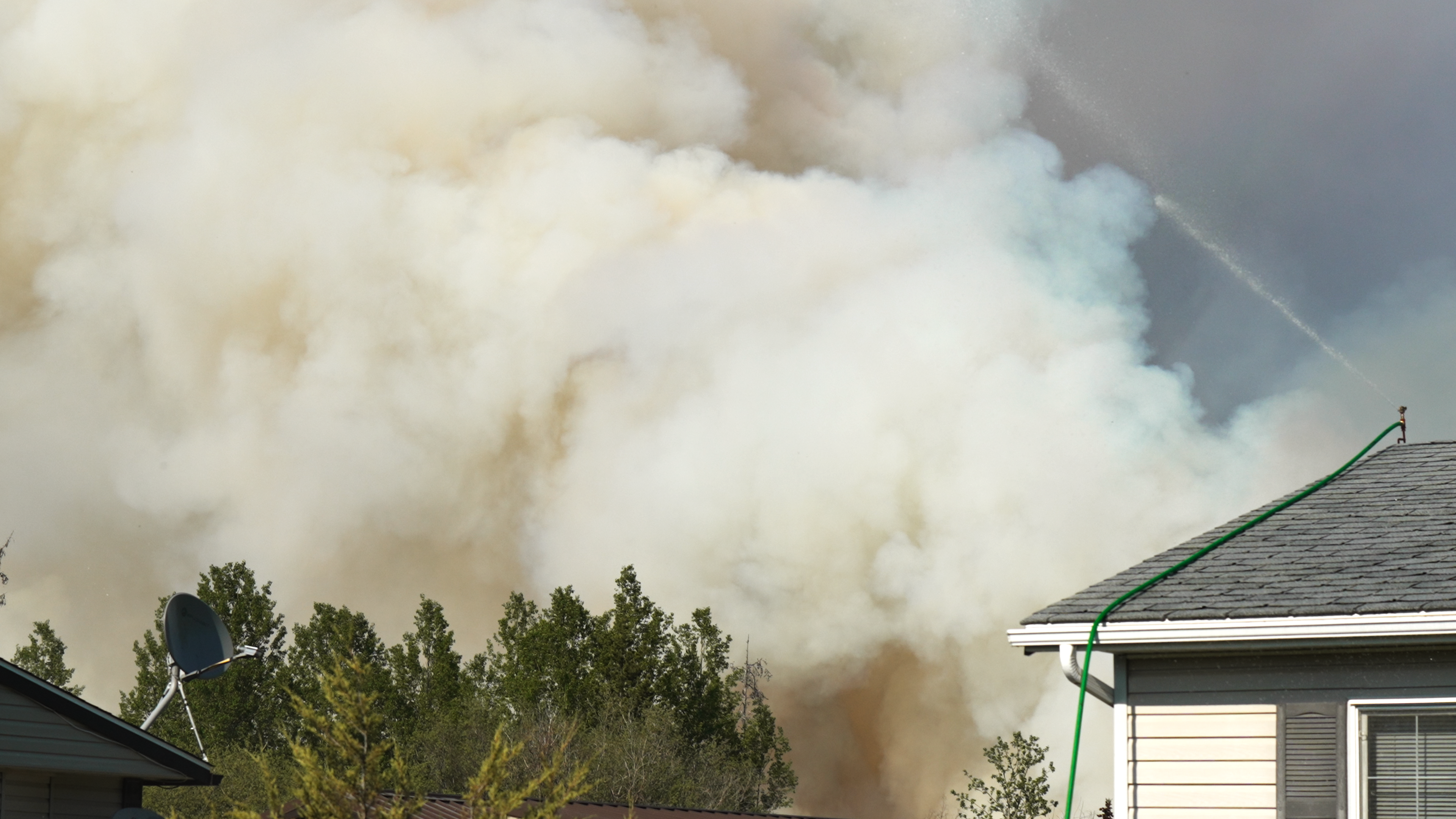BC Wildfire Service - Fire Services
Through the Fire Services program, the BC Wildfire Service (BCWS) provides training for local fire departments and contract crews in the areas of structure protection, structure defence and large water supply systems. This training is key to defending communities in the Wildland Urban Interface (WUI) that may be threatened by wildfire.
Response
The BCWS Fire Services office supports and staffs the provincial Structure Protection Coordination Officer (SPCO) responsible for the mobilization, deployment and demobilization of fire department and contractor resources in response to WUI events. The coordination and cooperation in WUI fire management is a collaboration between the BCWS and the Fire Chiefs Association of B.C. The inter-agency agreement establishes the standards for mobilization and demobilization of resources in response to wildland fire and all-hazard events. It is the foundational document instituting overarching processes for total mobility of resources. A quick reference brochure on Structure Protection and FireSmart can be found here.
When responding on Reserve Lands, BCWS may work with the First Nations' Emergency Services Society (FNESS) to access additional structure protection resources. Indigenous governments may also consider requesting structure protection resources directly through FNESS. For more information about how we work together, read the Frequently Asked Questions and/or review the process flowchart.
Get involved
Updated information packages are distributed annually to all municipal and regional fire departments in B.C. to then establish a WUI Fire Department Resource Availability list for engagement in province-wide deployments of apparatus and personnel. The latest Letter to Fire Chiefs and Emergency Coordinators (PDF, 120KB) is available online.
Third-Party Wildfire Resources
For the 2024 wildfire season, an interim SOG for Third Party Wildfire Resources (PDF, 135KB) has been created. The Standard Operating Guideline (SOG) relates generally to the provision of wildfire-related services by entities which are not those of an Authority Having Jurisdiction (AHJ) either directly employed or under contract or other form of agreement.
Further information on fire department WUI resource availability, training and deployments can be found on the following pages:
 Resource Availability
Resource Availability
Interested fire departments must submit a resource availability form that outlines their available apparatus and personnel.
 Training
Training
BCWS provides Wildland Firefighter, Wildland Structure Protection, Task Force/Strike Team Leader, Engine Boss and Intermediate Wildland Fire Behaviour training to fire departments, First Nations and structure protection contractors.
 Deployments
Deployments
What can registered structure protection personnel expect before, during and after deployments?
Frequently asked questions
What is the zero tolerance policy, and does it apply if I am not staying at a BC Wildfire Service fire camp?
The BCWS has a zero tolerance policy for consuming alcohol or drugs during deployment. This includes travel days to and from the incident, off-duty hours and when you are not staying at camp.
How are departments selected for provincial deployments?
BCWS Fire Services maintains the WUI Fire Department Resource Availability list categorized by apparatus type and grouped by the respective home Fire Centre. When the SPCO is looking to mobilize and deploy resources to an incident, they typically rely on the closest and most appropriate resource. This facilitates having the right resources on-scene in the shortest period of time.
Are meals and accommodation included during a deployment?
Fire department personnel are expected to stay in a fire camp or structural apparatus staging area camp curing their deployment to WUI events, unless it is a local deployment within one hour of travel time (1/2 hour each way) from the fire hall to the staging area. More information can be found under 7.5 Food and Lodging in the Inter-Agency Agreement.
Does the age of an apparatus affect how much I get reimbursed?
All apparatus may be subjected to off-road use (i.e. unpaved roads). Commercial vehicle inspection must be current and decal displayed. Apparatus older than 25 years will be considered for deployment only if it is certified by a qualified technician as mechanically sound. Documentation of the apparatus mechanical certification must be made available upon request. More information can be found under 10.3 Mandatory Apparatus Requirements in the Inter-Agency Agreement.
For structure protection community funding, visit: FireSmart BC funding resources
